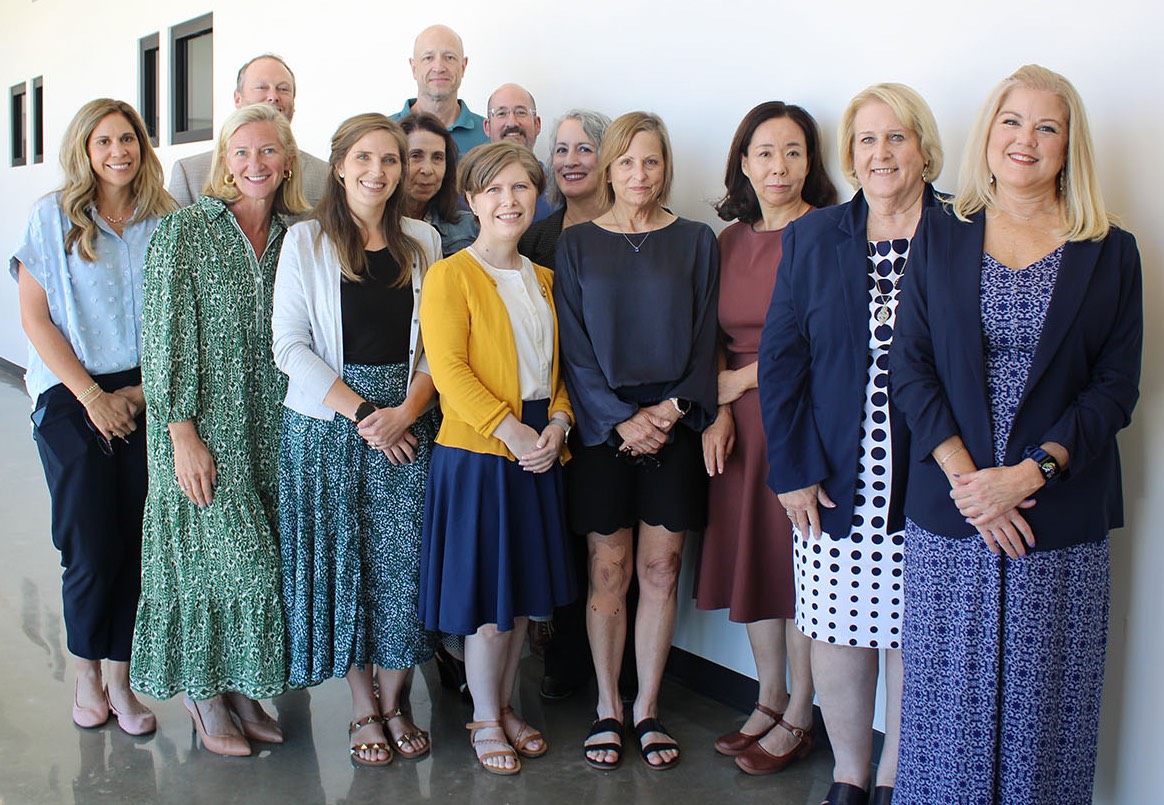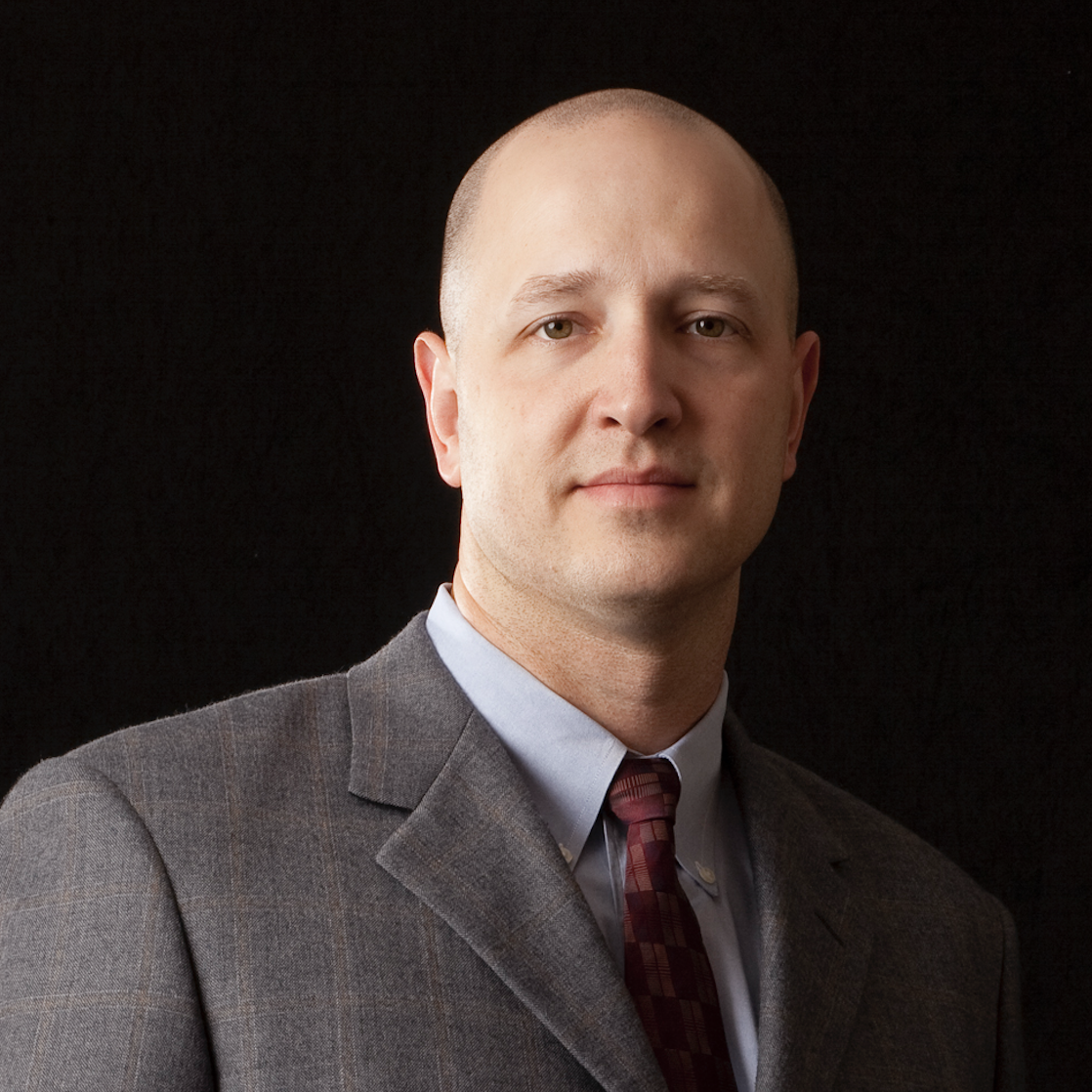Federal Grant Bolsters LSU’s Charge to Improve Dementia Care for Louisiana’s Underserved Communities
December 11, 2024
Louisiana is among the five states with the highest occurrence of Alzheimer’s disease and related dementias, or ADRD. However, many of the state’s rural and underserved areas lack the treatment options and resources that ADRD patients and their caregivers desperately need.

Team members representing the following organizational partnerships (alphabetical order): Alzheimer’s Services of the Capital Area; Chamberlain University — New Orleans; LSU Social Research & Evaluation Center; Ochsner Health; and University of Southern Mississippi School of Social Work.
LSU’s Healthy Aging Research Center, or HARC, is working to address the issue with the help of a five-year, $5 million Health Resources & Services Administration, or HRSA, grant, which aims to improve the quality of integrated care in primary care settings for individuals and families — patients and care partners — living with ADRD.
The grant supports ongoing work by HARC, including:
- monthly Extension for Community Healthcare Outcomes (ECHO) training sessions for doctors, nurses, and social workers who work with ADRD patients;
- self-paced training for medical, nursing, and social work students and faculty to develop the future health care workforce who will support patients with ADRD;
- ADRD-specific internships for medical, nursing, and social work students;
- other live and online training opportunities.
The project, Louisiana-Mississippi Geriatric Workforce Enhancement Project, or LAMS-GWEP, is led by the center’s director, Scott Wilks, the W.H. “Bill” LeBlanc LSU Alumni Association professor for the College of Human Sciences & Education’s School of Social Work.
“Our target population is Louisiana and Mississippi residents with emphasis in rural and coastal areas,” Wilks said. “These folks are underrepresented and often overlooked in quality health care research and practice.”

Scott Wilks
Wilks is a native Louisianan and LSU alumni, graduating in the spring of 1997 with a bachelor’s in sociology. Later, while pursuing his Ph.D. at the University of Georgia, he participated in a research project that inspired him to want to work with both professional caregivers and those who provide in-home, unpaid, daily care for loved ones with ADRD.
“I was fortunate to work on a research project under the tutelage of a nationally renowned geriatric social work scholar, Dr. Nancy Kropf,” he said. “The project focused on health among grandparent caregivers, i.e., custodial grandparents, and initiated my appreciation for care partners.”
According to the U.S. Centers for Disease Control, ADRD is the seventh leading cause of death in the country as a whole and in Louisiana and Mississippi.
Louisiana and Mississippi residents in underserved areas face serious obstacles such as longer travel to professional medical care, transportation limitations, inadequate or lack of health insurance, and isolation from social support.
“All of these barriers are far too common among our rural and coastal residents,” Wilks said. “Additionally, a mistrust of health care systems, validated by historical wrongs toward underserved ethnic minority communities, contribute significantly to access of quality care.”
Wilks said ADRD care partners in these areas face daily struggles.
“The immense burdens associated with their caregiving responsibilities commonly have devastating effects to their physical and mental health,” he said. “I expect HARC to be at the forefront of finding measures to alleviate these burdens, thereby improving these care partners’ quality of life.”
Explore the LSU HealthY Aging Research Center
Q&A With Scott Wilks
We know that age, family history, genetics, and previous head injury are significant factors irrespective of region. But, there are plenty of factors that point directly to higher rates of ADRD in our target region.
Louisiana and Mississippi are among the top states for poor diets, physical inactivity, low education levels, and medical conditions such as diabetes and cardiovascular disease, all of which are contributing factors to ADRD. Also, environmental conditions such as air pollution increase ADRD risk. Louisiana and Mississippi sit in the middle of the pack for state air quality levels.
We provide monthly ECHO (Extension for Community Healthcare Outcomes) trainings, which traditionally target physicians and other advanced practice providers. But we have also seen the number of nurses and social workers who attend our ECHOs steadily increasing.
Our ECHOs are one-hour virtual sessions held at 8 a.m. to try to accommodate the schedules of busy health care providers. These sessions include an educational piece followed by discussion of a case study related to the educational topic.
In addition to ECHO, we host four live dementia trainings each year: the Alzheimer’s Services Educational Conference, and three other trainings, all virtual (online), held at noon to allow providers to join during their lunch break.
One event, which we’ve repeated every year since it’s well-received, is the multidisciplinary ADRD panel. A panel of ADRD experts including a physician, nurse, social worker, and family caregiver answer questions from the audience to improve ADRD-friendly practice.
Another of these lunch events will feature speakers from National Council of Dementia Minds, so participants can learn directly from individuals living with ADRD.
Our LAMS-GWEP team represents a mutually beneficial, collaborative partnership among the entities below. Each partnership is critical to meeting our interdisciplinary goals, specifically in medicine, nursing, and social work.
Given that primary care settings offer integrated care, our LAMS-GWEP trainings must address ADRD-friendly health practices among the aforesaid professional disciplines. The academic partnerships reflect our geographic target areas in Louisiana and Mississippi.
- LSU Healthy Aging Research Center
- LSU School of Social Work
- LSU Social Research & Evaluation Center
- Ochsner Health System
- Chamberlain University College of Nursing
- Alzheimer’s Services of the Capital Area
- University of Southern Mississippi School of Social Work
We are beginning our first year of the five-year LAMS-GWEP cycle. For the previous five years, my team successfully managed Louisiana-GWEP, again financially supported by HRSA. With LA-GWEP, we saw viable impact in several ways, including but not limited to the following:
- Successfully completed all requirements and met all thresholds to earn the prestigious, national recognition of Age-Friendly Health System for Ochsner Health main campus medical center in Jefferson, Louisiana. This recognition is a collaboration from American Geriatrics Society, American Hospital Association, and the Institute for Healthcare Improvement.
- Instituted the first ADRD-focused curriculum requirement for medical students in the University of Queensland (Australia) – Ochsner MD Program.
- Instituted the first ADRD-focused curriculum requirement for nursing students in the Chamberlain University (New Orleans) Bachelor of Science in Nursing Program.
- Instituted and financially supported GWEP Fellows at Ochsner and Chamberlain. These fellows will eventually be providers who have completed specialized ADRD training.
- Supported specialized education and training for LA-GWEP medical co-investigator and Ochsner physician Dr. KJ Carstarphen in the American Hospital Association’s Next Generation Leadership Fellows Program.
I see a trend — and hopefully, it’ll continue — on a focus from research funders,
private and public, on social determinants of health. As defined by the CDC and National
Institutes of Health, these social determinants, including disparities in economic
stability, education, and health care access, can have profound effect on health and
wellbeing among vulnerable populations.
We need much more research to understand social determinants’ influence on persons
diagnosed with ADRD and their care partners, especially in regions like Louisiana
and the Deep South, where these disparities are profoundly apparent.
My HARC team intends to meet this need, using evidence-informed research to advocate
for policy and program changes in health care systems.
Louisiana is my home. I love my state and my Cajun heritage. I am an LSU alum. As
I neared completion of my PhD work at UGA, I promised my wife (Manship Senior Instructor
Sadie Wilks, also a Louisiana native) that we would jump at the chance to return to
LSU.
While working at Appalachian State University, the opportunity presented itself in
early spring 2006, and I was fortunate to join the LSU School of Social Work faculty
later that fall.
I have always dreamed of leading a research center dedicated to healthy aging. After
years of building a national funding and scholarship record, I was approached by CHSE
Dean Roland Mitchell, to whom I am immensely grateful, with the opportunity and support
from the college to develop such a center.
I utilized the established and funded LA-GWEP project as the cornerstone of HARC.
The more recent success of LAMS-GWEP has bolstered my goals of earning Center of Excellence
status and national reputation for HARC.
I am blessed to work alongside a wonderful team of LSU scholars, including SSW colleagues
Dr. Laura Ainsworth and Dr. Catherine Lemieux, with evaluation support from SREC Director
Dr. Judith Rhodes and her staff.
Next Step
Discover stories showcasing LSU’s academic excellence, innovation, culture, and impact across Louisiana.


